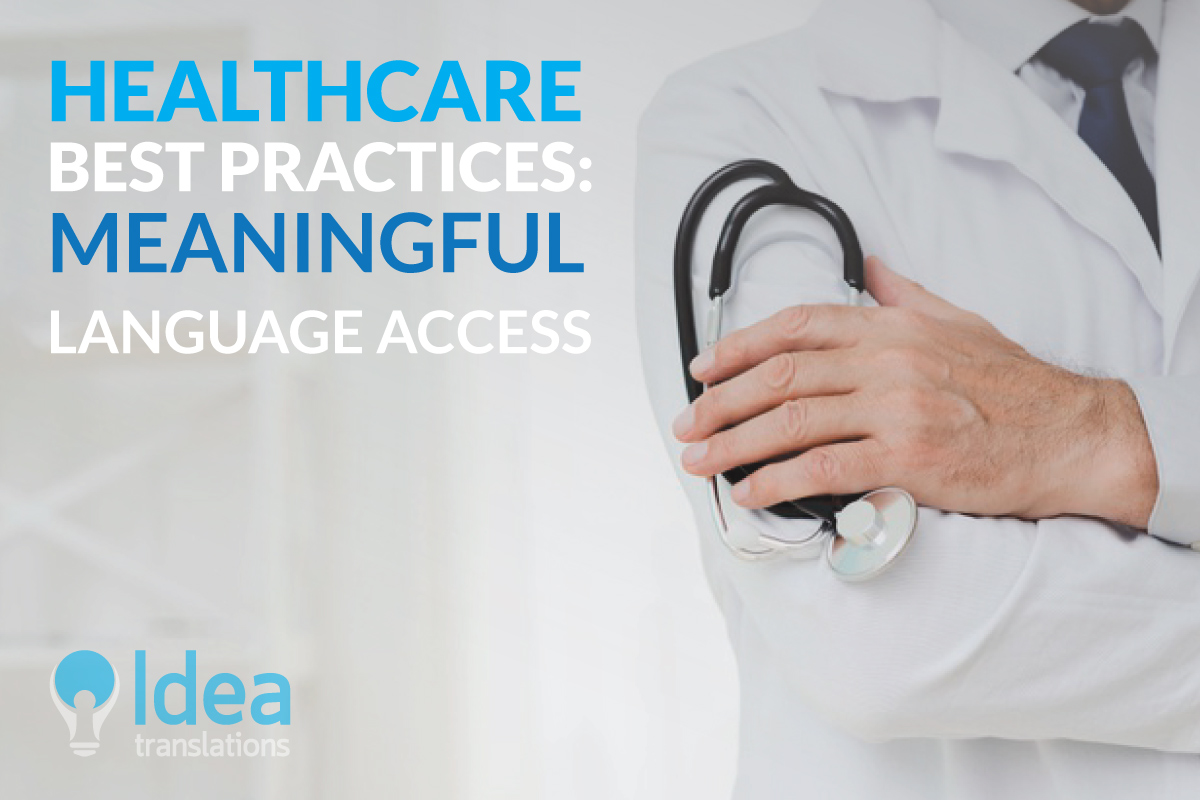
Does your healthcare organization provide meaningful language access to patients from different cultures?
Idea Translations understands the importance to improve quality healthcare services by providing meaningful language access. Its objective is to reduce barriers to healthcare access for patients that come from other cultures or speak languages other than English.
The Principal Standard in the National Culturally and Linguistically Appropriate Services (CLAS) Standards in Health and Health Care states: “Provide effective, equitable, understandable and respectful quality care and services that are responsive to diverse cultural health beliefs and practices, preferred languages, health literacy and other communication needs.”
A 2010 report by the University of California, Berkeley School of Public Health and National Health Law Program found that of 1,373 malpractice claims, at least 35 were linked to inadequate language access.“
Healthcare providers should take time to learn the cultures of patients within their community to better understand situations in which cultural differences impact the quality of care provided.
Below is a list of medical documents that should be translated in every office where health care is provided:
- Notices for free language assistance
- Notices of eligibility criteria for services
- Informed consent documents
- Intake forms that have clinical consequences
- Discharge instructions
- Complaint forms
Sometimes, hospitals use bilingual staff to translate these and other documents into other languages (Spanish, Arabic, etc.). Although this might sound like a feasible approach, beware that bilingual staff does not equal trained translators. Additionally, medical terminology can be rather complex and errors when translating medical terms can have steep consequences.
Implementing healthcare translation services has a number of benefits, namely:
- Compliance. You are compliant according to federal requirements, which can allow you to apply for federal funding and avoid any potential legal risk.
- Avoid Litigation. The lack of provision of language access can yield to additional risks when it comes to malpractice lawsuits.
- Be different. Quality care in languages other than English can create a competitive advantage for you by making your organization the go to healthcare provider for non-English speaking communities.
If you don’t have a language access strategy, we can help you identify the one that best suits your organization, contact us for a free professional consultation.



